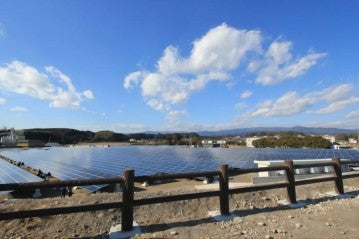
Solar panels have become an increasingly popular choice for homeowners and businesses looking to harness renewable energy and reduce their carbon footprint. One of the common questions asked by potential customers is, "How long do solar panels last?" Understanding the lifespan of solar panels is crucial for making informed decisions and maximizing the return on investment. In this article, we will explore the factors that affect solar panel lifespans, provide tips to extend their lifespan, and discuss when you should plan to replace them.
1. How Long Do Solar Panels Last?
Solar panels are designed to be durable and have a long lifespan. On average, most solar panels have a lifespan of 25 to 30 years. This means that during this period, they will continue to produce electricity at a high efficiency level, typically around 80% to 90% of their original capacity. Some premium solar panels have even been known to last up to 40 years or more with proper maintenance.
2. Factors That Affect Solar Panel Lifespans
While solar panels are built to last, several factors can influence their lifespan:
a. Quality and Manufacturing: The quality of the solar panels plays a significant role in determining their longevity. Investing in high-quality panels from reputable manufacturers ensures better durability and performance over time. Cheaper, low-quality panels may have a shorter lifespan and may not withstand harsh weather conditions as effectively.
b. Maintenance and Care: Regular maintenance and cleaning are essential for maximizing the lifespan of solar panels. Accumulation of dirt, dust, leaves, or bird droppings can reduce their efficiency. Cleaning the panels periodically with water and a soft brush can help remove debris and ensure optimal performance.
c. Climate and Environmental Factors: The climate and environmental conditions in your area can impact the longevity of solar panels. Extreme temperatures, heavy snowfall, hailstorms, and high humidity levels can affect their performance and durability. It is advisable to consult with a solar professional who can guide you on selecting panels suitable for your specific climate.
d. Installation Quality: Proper installation is crucial for the longevity of solar panels. Poor installation techniques or using substandard mounting systems can lead to damage over time. Hiring a certified and experienced solar installer ensures that the panels are installed correctly, minimizing the risk of premature wear or failure.
3. 3 Tips You Can Try to Make Your Solar Panels Last Longer
To extend the lifespan of your solar panels and maximize their efficiency, here are three important tips to keep in mind:
a. Regular Maintenance: Schedule regular inspections and maintenance checks with a professional solar technician. They can identify any potential issues, such as loose connections, faulty wiring, or damaged panels, and address them promptly. Additionally, keeping the panels clean and free from debris will help maintain optimal performance.
b. Monitor Performance: Most solar systems come with monitoring capabilities that allow you to track the performance of your panels. Keep an eye on the production levels and any sudden drops in output, as these could indicate a problem. Addressing issues early can prevent further damage and ensure your panels continue to operate efficiently.
c. Invest in Quality Equipment: Opt for high-quality solar panels, inverters, and other system components. While they may have a higher upfront cost, they often come with longer warranties and better durability. Investing in reliable equipment reduces the risk of premature failure and the need for frequent replacements.
4. When Should I Plan to Replace Solar Panels?
While solar panels have a long lifespan, it is important to plan for their eventual replacement. As a general guideline, if your panels are over 25 years old and experiencing significant performance declines, it may be time to consider replacing them. Advances in technology and improvements in efficiency may make upgrading to newer panels a wise decision. Additionally, if you are experiencing frequent breakdowns or if repairs are becoming costly, it might be more cost-effective to invest in new panels.
Conclusion
Understanding the lifespan of solar panels and the factors that affect their longevity is essential for anyone considering a solar energy investment. By choosing high-quality panels, maintaining them regularly, and monitoring their performance, you can extend their lifespan and maximize their efficiency. Ultimately, when the time comes to replace your solar panels, consult with a reputable solar installer who can guide you on the best options available to suit your evolving energy needs. Investing wisely in solar panels ensures a sustainable and long-lasting source of clean energy for years to come.
Related articles: The Main Benefits and Usages of Solar Panels Power

0 comments